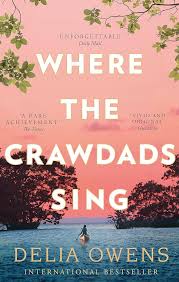56. The Night Heron
byThe Night Heron watches from a distance as dawn creeps over Barkley Cove’s graveyard, where gravestones stand like silent sentinels beneath the drooping Spanish moss. The morning air is heavy with mist, carrying the scent of salt and earth, as if the sea itself has come to mourn alongside those who have gathered. Tate moves through the winding paths, his footsteps slow, deliberate, each step echoing the weight of emotions that press down on him. The graveyard, a place that has long housed the history of the town, now holds a piece of his own—his father, Scupper, now resting among those who once sailed the waters and built their lives along the marshy coast.
The realization of loss strikes him in waves, bringing with it a tide of sorrow that cannot be undone. Yet grief alone is not what grips him—it is the sharp sting of regret, the unspoken words that now feel like lost opportunities, and the painful awareness of moments he can never reclaim. His love for Kya had consumed much of his attention, pulling him away from the father who had guided him through boyhood, shaping him into the man he had become. He had spent his time fighting for Kya, supporting her through the scrutiny of the town and the trials she faced, but now, in the stillness of the graveyard, he wonders how much of that time came at the cost of truly knowing his father in his final years.
Tate kneels beside the fresh mound of earth, the cool morning breeze rustling through the nearby trees, carrying echoes of the past. In his hands, he holds a small brown case—unremarkable to anyone else, but to him, it carries the weight of shared moments and quiet lessons learned. A battery-operated record player, a relic of the past, sits beside the headstone as a final tribute, a tangible bridge between what was and what will never be again. The song that begins to play—Miliza Korjus’s delicate melody—drifts into the still air, threading itself between the graves, wrapping around him like a whisper of remembrance. It is a song his father once played for him, a song that now serves as both a farewell and a connection across time.
As the melody unfolds, memories surface, vivid and unrelenting. His father’s voice echoes in his mind, not just in words but in gestures, in the way he saw the world, in the quiet lessons he tried to pass down. Scupper had never been the kind of man who measured strength in physical might alone; he believed in the power of emotion, in the ability to appreciate beauty, to express rather than suppress. Music had been one of his ways of teaching Tate that life was not just about surviving, but about feeling—about embracing the moments that made existence meaningful. Now, as Tate listens to the song playing in the morning light, he finally understands the depth of his father’s wisdom.
Tate’s gaze drifts toward the sea, its presence constant, unchanged, a reminder of the way life moves forward no matter how much we wish to hold onto the past. His father had once told him that the sea never stops teaching, that if one listens closely, the waves have stories to tell. He wonders if, in some way, his father’s presence lingers in the water, in the shifting tides, in the gentle wind that carries the song toward the marsh. He takes a deep breath, allowing the stillness to settle inside him, understanding now that grief does not have a clear end—it becomes a part of a person, shaping them just as love once did.
As the Night Heron perches nearby, its head tilting slightly as if observing his moment of reflection, Tate feels a quiet sense of closure—not an end, but an acceptance of what has been and what will always remain. The record player hums softly as the song fades, but the feeling it evokes lingers, much like his father’s teachings, much like the love that never truly disappears. The graveyard, though a place of endings, becomes in this moment a space for understanding, for carrying forward the lessons left behind. Tate rises, the weight of loss still present but no longer as heavy, knowing that in every wave that crashes against the shore, in every song that plays through the wind, his father’s spirit will always be there.


